The research is aimed at developing scientific provisions that reveal the essence of axiological, substantive and structural changes that occur or will predictably occur in Public International Law in connection with the ever-increasing speed of development and implementation of information technologies in various spheres of society. The project focuses on three areas that pose challenges to the existing regulatory regime: the use of computer technology to influence and interfere in the affairs of other states; State deployment of mass electronic surveillance of citizens; introduction of technologies based on the use of autonomous robotic systems and artificial intelligence. The project is carried out in English by two learned mentors and six young researchers.
News
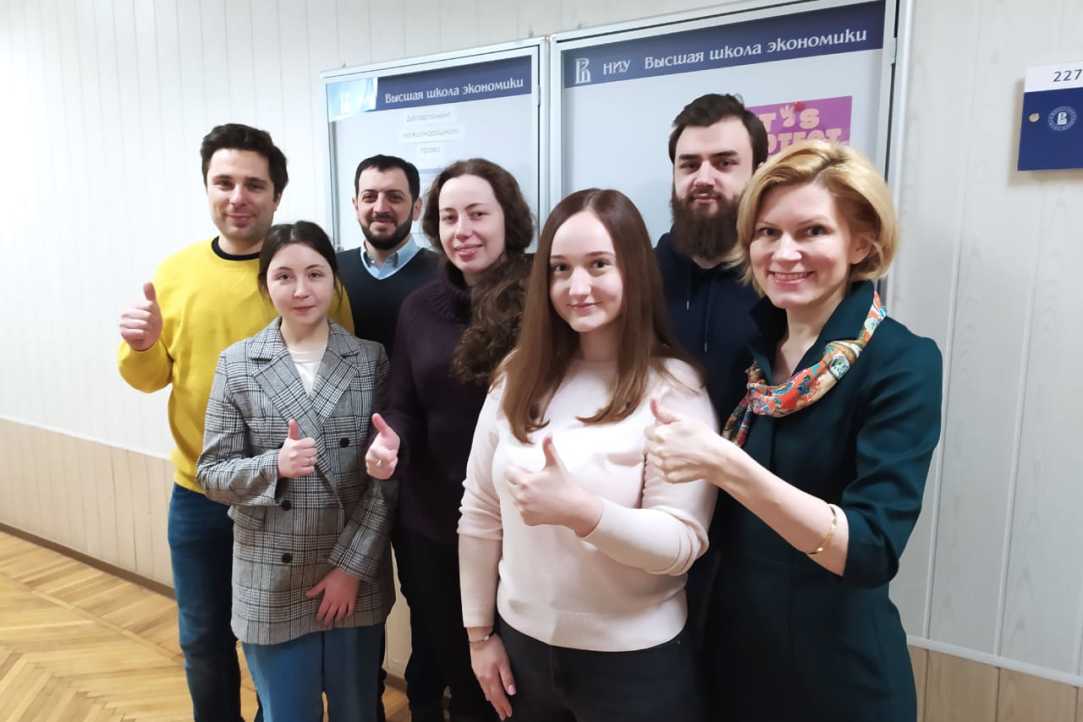
On March 13, 2021, the scientific and educational group ‘International Law in the Cyber Age’ held its last meeting, which summed up the results of research carried out throughout 2020.
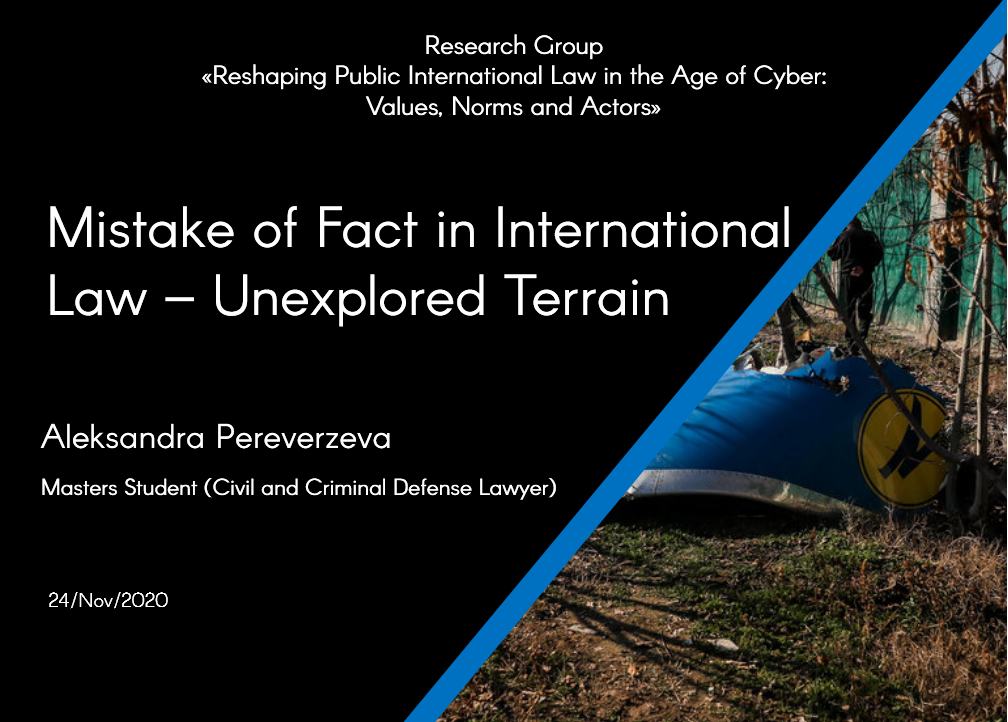
For International Lawyers, the initial position of the Iranian government regarding shooting down Ukraine International Airlines flight 752 in early January 2020 had to be inquired, as to the validity of claiming one of the well-established defences in criminal law, namely “mistake of fact”, applicable in this scenario. The tragedy created by this unfortunate incident left many initial questions unanswered, particularly concerning the official Iranian vague denial before admitting the shooting due to wrong radar reading. Our colleague Alexandra Pereverzeva dedicated this seminar to discuss this issue.
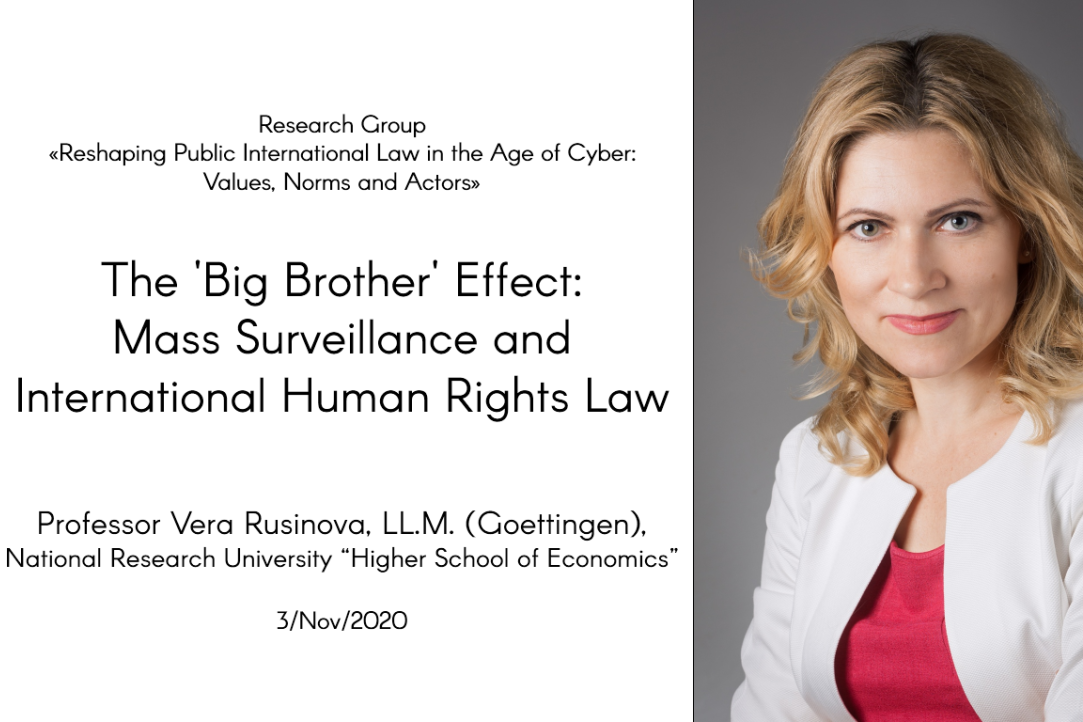
Professor Vera Rusinova tackled from the point view of law on of the most pressing issues of our contemporary civil societies, namely the controversial question of mass surveillance. The lecturer applied a unique interdisciplinary approach relying on related judicial decisions and sociological literature to describe the current state of human rights law against the rapidly spreading practice of mass surveillance.
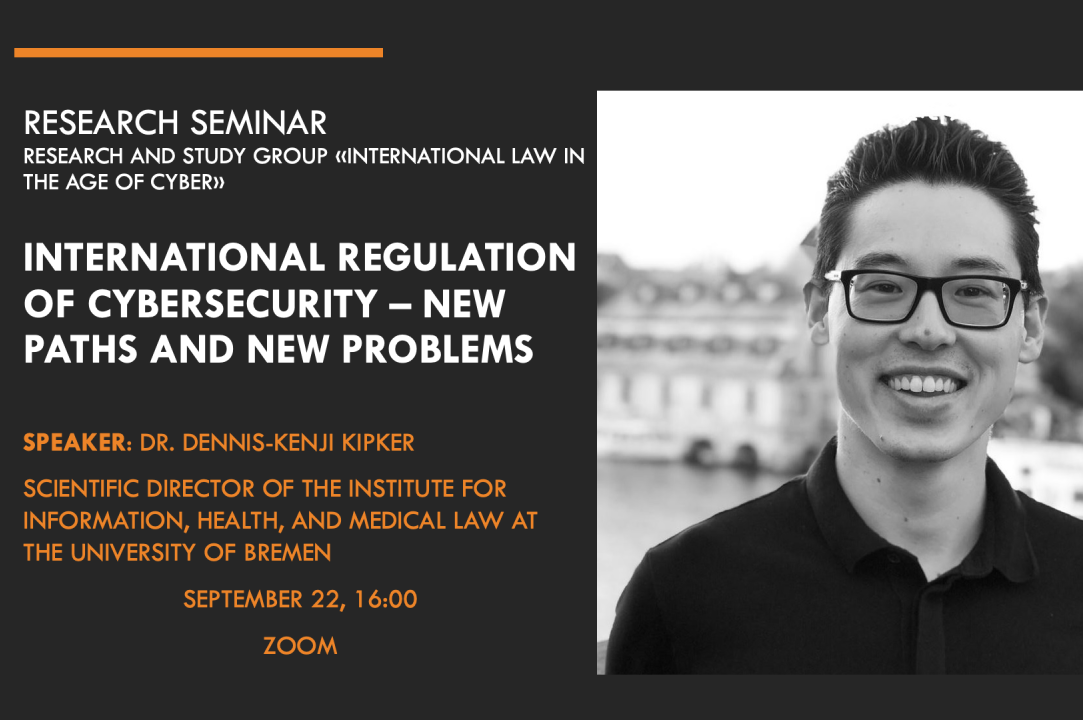
Due to the increasing number of cyberattacks globally, legislators in various countries have committed themselves to increase legal regulation of cybersecurity. But what exactly are the laws, and where are the limits of legal regulation? Professor Dennis-Kenji Kipker shared his opinions on this matter.
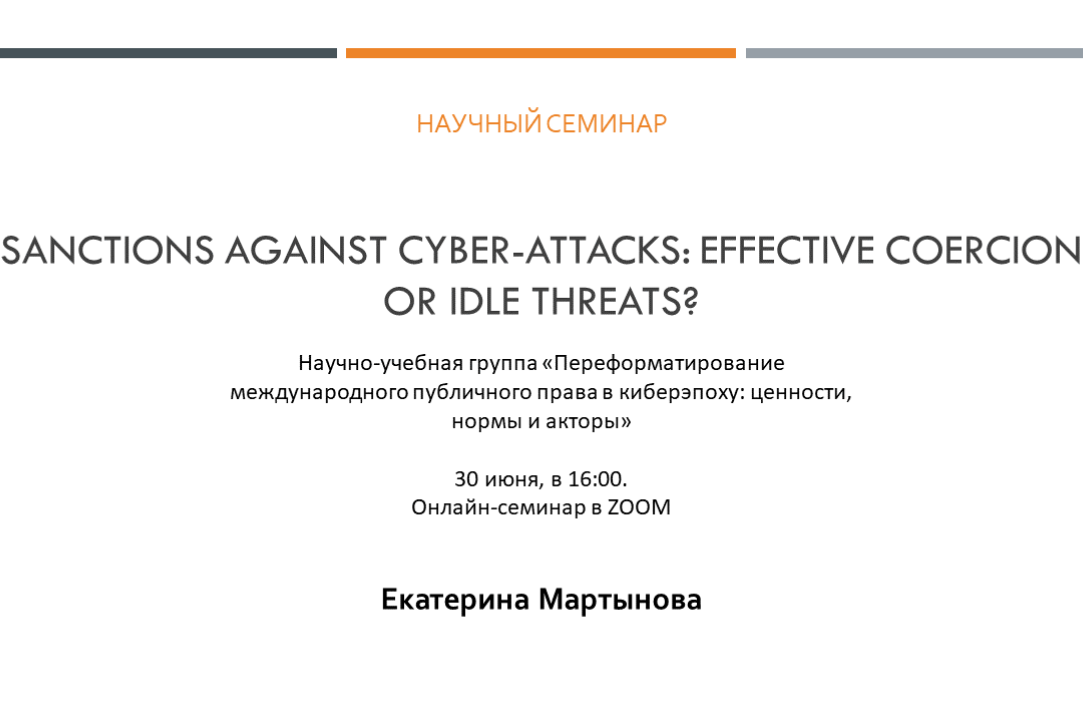
War is merely a continuation of policy by other means, according to the famous strategist Carl von Clausewitz (1832). As the nations strive to make the world a safer place, the military interventions are, however, being more and more replaced by economic sanctions. In the age of cyber States increasingly resort to economic sanctions as a means of reaction to cyber-enabled activities. But do sanctions represent an appropriate countermeasure to cyber-attacks?
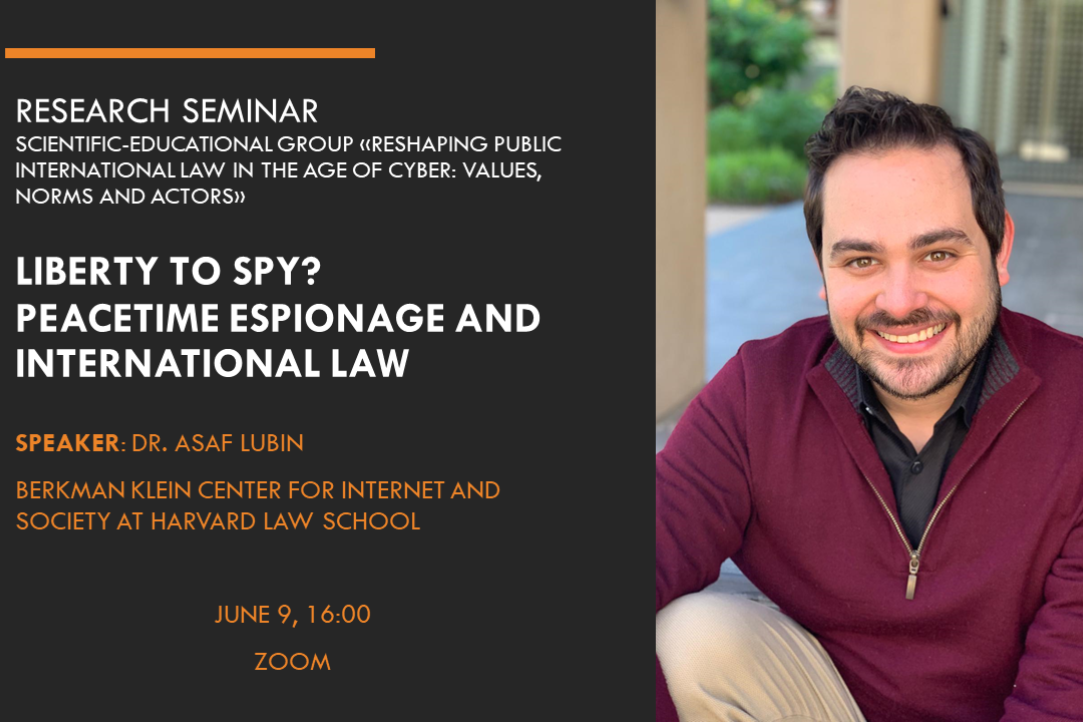
In his lecture titled “Liberty to Spy? Peacetime Espionage and International Law”, Dr. Asaf Lubin (J.S.D.) presented thoughtful arguments challenging the commonly held scholarly opinion on the unfeasible existence of an International Law of Intelligence. In his argumentation, Dr. Lubin relied on a variety of state practice in peacetime while incorporating intelligence ethics and moral philosophy.
.png)
The speaker Marco Roscini, Professor of International Law at the University of Westminster in London and the author of Cyber Operations and the Use of Force in International Law (Oxford University Press, 2014) dedicated his presentation to two issues: substantial International law applicable to cyber operations and relevant evidentiary standards.
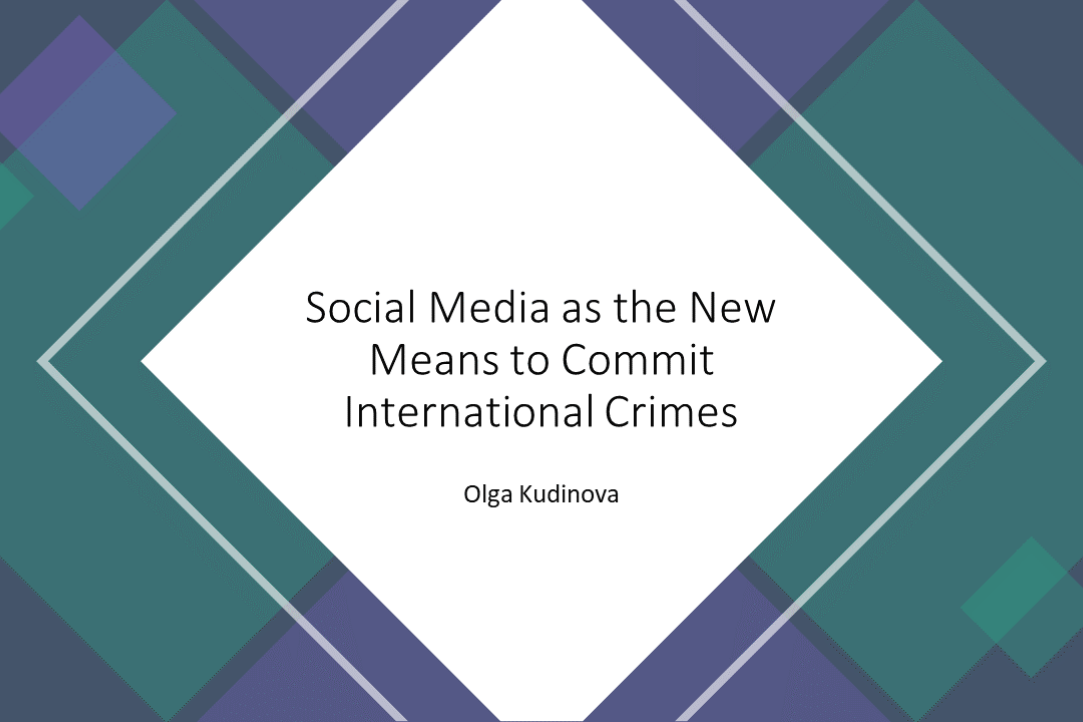
The seminar addressed the involvement of the social media platform Facebook in the event occurring in Myanmar in the past few years as well as the company’s role in the Cambridge Analytica scandal, specifically with regards to Cambridge Analytica’s involvement in the 2017 post-election violence in Kenya.
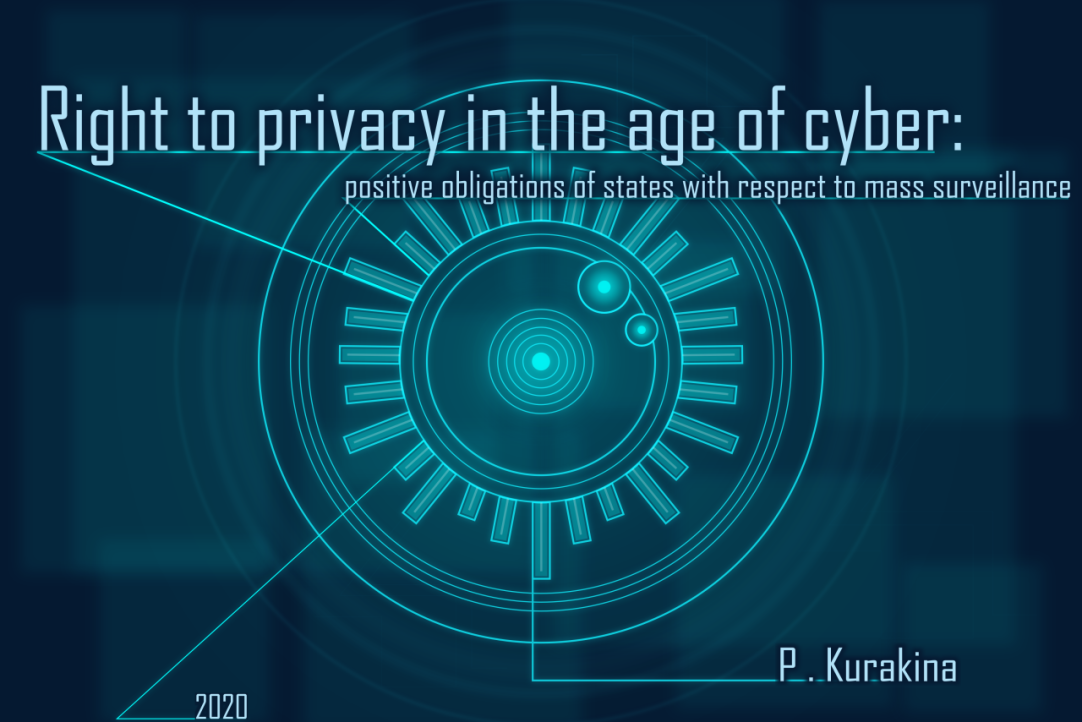
In her report presenter gave an overview of positive obligations of states with respect to mass surveillance.
In their report, the presenters (Alaa N. Assaf and Daniil Moshnikov) gave an overview of the theories and the practice regarding territorial sovereignty in cyberspace under international law.
